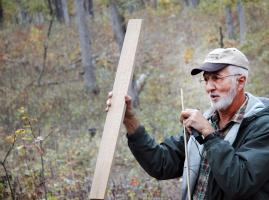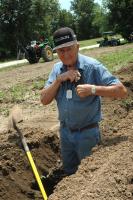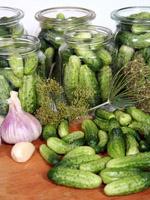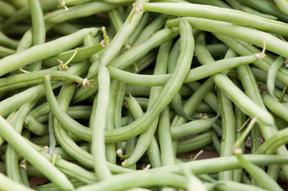Small grain crops seeded this fall replace dry pastures for cow herds
COLUMBIA, Mo. – Seeding winter annual small grain offers fall grazing for beef cow herds short on grass and hay.“Lots of calls are coming in,” said Craig Roberts, University of Missouri Extension forage specialist. He offers encouraging words and cautions.Interest grew as some local USDA Farm Service Agency offices offer added drought disaster assistance.
MU Extension, NRCS offer warm-season grass workshop
BUFFALO, Mo. – University of Missouri Extension and the USDA Natural Resources Conservation Service offer an evening workshop on warm-season grasses and cost-share programs on July 31.The pasture tour begins at 6:30 p.m. at the Ron Locke farm near Buffalo.
MU Extension holds second spirits industry tour
COLUMBIA, Mo. – Openings remain for the second annual University of Missouri Extension White Oak, Whiskey and Wine Tour on Saturday, Oct. 13. The all-day tour toasts the state’s unique contributions to the wine and whiskey industries.
Plan meals for families on the go
CAMDENTON, Mo. – Save money, time and stress by planning meals this school year, says University of Missouri Extension health and nutrition specialist Melissa Bess.Fall brings football games, 4-H meetings, dance classes, cheerleading, harvest and much more. Families sometimes struggle with how to avoid concession stands and fast food.
81-year-old Missouri farmer tries subsurface drip irrigation
BELLFLOWER, Mo. – You won’t find grass growing under 81-year-old Russel Winter’s feet. While many farmers his age are retired, Winter still likes to lead the way in trying new farming technology and methods.During a recent hot summer day, Winter helped dig a trench for subsurface drip irrigation on his farm in Montgomery County. “I’ve been wanting to try this for 10 years,” he said. “Now that I should be quitting (farming), I’m trying…
New MU app helps identify herbicide injury
COLUMBIA, Mo. – University of Missouri Extension introduced a new mobile app to identify herbicide injury at its annual Pest Management Field Day on July 10.MU Extension weed specialist Mandy Bish says Herbicide Injury ID lets users send photos of injured plants to MU Extension for preliminary diagnosis and feedback. Users can also scroll through a library of more than 200 photos to look for similar types of damage.
Drought stays as beef farmers plan on fall rains to make winter pasture
COLUMBIA, Mo. – Stunted, stemmy pastures unable to support grazing cattle have potential. Depend on fall rains to bring fall regrowth, says University of Missouri Extension forage agronomist Craig Roberts.Cool-season grass growth always slumps in summer. Fescue goes dormant. This year, the slump dives deep with lack of rain and too much heat. In spite of that, Missouri farmers should prepare for fall regrowth for winter grazing.
Choose a pressure canner to safely preserve foods
With each year’s growing season, there seems to be another round of “new and improved” kitchen gadgets to make preserving the harvest easier and better. Some can be a great help; others, like the electric multi-cooker appliances, may not result in the safe canned product one might be expecting.
Issues with canning on ceramic or glass stovetops
A common question about canning foods is, “Is it OK to can on my ceramic or glass stovetop?”First, check the recommendations of the particular stove’s manufacturer. Some say absolutely not, while others say it is OK, but with certain stipulations.
Get ready for home canning season
When you plant your garden, it’s so easy to imagine all of the great tasting, healthy food that will come from those tiny seeds and plants. Many people grow not only enough to eat during the summer but enough so they can preserve those garden delights for cold winter nights. Spring is a great time to make sure your canning gear is ready for production when your garden starts producing more than you can eat.
Packing perfect pickles
It can be very rewarding to serve your family and guests your very own homemade pickles. Whether you are a novice or experienced pickle maker there are things to keep in mind when making your pickled products. Below are several questions that we have received at the Extension office with the correct answers:
Blanch vegetables before freezing
Every fresh sweet corn season I hear people telling others to preserve their corn by just putting it in the freezer. Unless you are freezing onions or green peppers, blanching is a must before freezing vegetables.
Making fruit leather
A great way to preserve extra fruit or fruit with bumps, bruises or knots is to make fruit leather.The National Center for Home Food Preservation at University of Georgia Cooperative Extension has helpful directions for making fruit leather:
Pack a perfect pickle
Pickling is a different way to enjoy cucumbers and is often an easy process, but there are some important things to know to assure pickles are safe to eat.The main ingredients used for pickling are acid, salt, sugar and spices. Lime and alum are also sometimes used to make crisper pickles.
Preserving fruit salsas
Tomato-based salsas have been popular for years for food preservers, but there is a new twist on this favorite — fruit salsas. “Most fruit salsas are preserved to be used with meats, poultry and fish,” said Susan Mills-Gray, nutrition/health specialist with MU Extension. “The fruit, herbs and heat of onion or pepper, as well as the vibrant colors adds zest to meals.”
Many ways to preserve garden green beans
There are many ways you can preserve green beans so you are eating your garden’s bounty all winter long. Most people can or freeze extra green beans, but you could also pickle or dry them for some interesting off-season eating.
Get the best results when freezing your produce
Many people enjoy planting gardens and eating fresh, homegrown produce in the summer. For people who want to preserve their garden vegetables and eat them another time, freezing is a viable option. The color, flavor and texture of the produce is often maintained when it is frozen, and the freezing process is easy and less time consuming than canning.
Prevent botulism from home-canned foods
Microorganisms all around us can cause food spoilage — they are in the air and soil, and on people and animals. Many microorganisms are difficult to get rid of, including Clostridium botulinum — the bacteria that causes botulism. Botulism is rare but can be fatal. Home-processed foods are often the culprit of foodborne botulism.
Low-cost strategies for staying cool and saving energy
BLUE SPRINGS, Mo. – Our region continues to suffer from the extraordinary heat. Many homeowners and renters are concerned with their utility bills and looking for strategies to reduce usage while staying comfortable. During these very hot days, it is important to take care of yourself. “Older people and the very young may have particular difficulties coping with hot weather,” says University of Missouri Extension housing and…
Preserve home-canned salsa safely
Don’t want to throw out extra tomatoes? Making salsa is a great way to preserve them! But it is important to follow the guidelines for keeping your home-canned salsa safe.Only use tested recipes when making home-canned salsa. A tested recipe assures there is enough acidity for safe processing in a boiling water bath. These resources offer tested recipes and tips for canning tomato products safely:
4-H Youth Futures helps underserved students overcome obstacles to attend college
COLUMBIA, Mo. – Diamond Mack wants to be an engineer, and 4-H is helping her.The St. Louis senior joined about 100 other high school students at the 4-H Youth Futures conference this summer at the University of Missouri. For 10 years the University of Missouri Extension program has made the dream of college a reality for hundreds of underserved and first-generation youth.
4-H Youth Futures program helps lower barriers to college
COLUMBIA, Mo. – When Sandra Trejo unpacked her bags and said goodbye to her parents last week, she was saying hello to the possibility of college.Trejo joined 80 other aspiring college students from high schools throughout Missouri. Thanks to the 4-H Youth Futures: College Within Reach program, students who might not otherwise go to college learn that they can achieve their dreams.
Problem solver for home-canned foods
It’s time for the canner to come out of winter storage.As you dust it off, you may remember some jars from last year that didn't turn out exactly as planned. Why do your tomatoes float in the jar? You may have used overripe tomatoes, packed them in the jar too loosely or processed them too long or at too high of a temperature.Here are some reasons why your food may not have come out as expected and some tips for ensuring …
Storing canned foods
Many people have questions about storing canned goods. And since February is Canned Food Month, now is a good time to address some of the most common questions.
Making jerky from venison
Deer-hunting season is in full swing. Making jerky is a popular way to preserve venison. Here are some tips on doing it safely, including specifications for ground meat.





